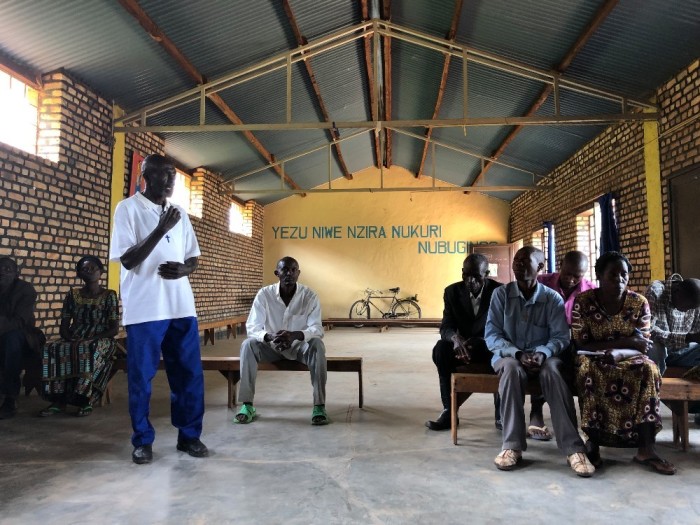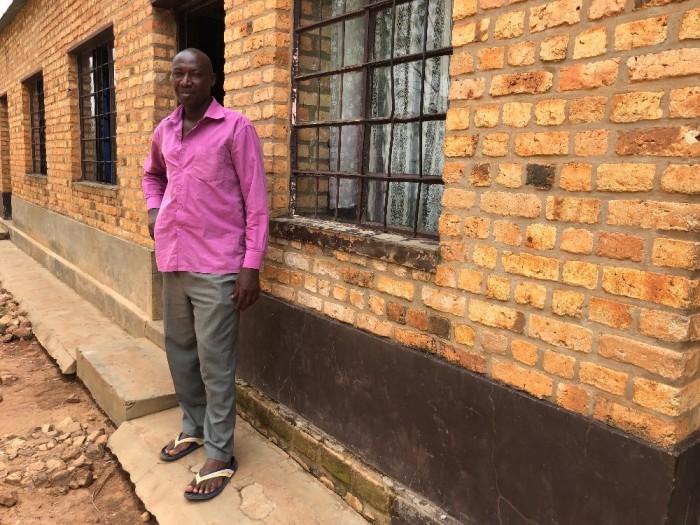Churches unite Rwanda genocide victims and killers to empower communities

RUGANGO, Rwanda — Farmer Habarurema Bosco did not feel like a human anymore after losing all of his family in the 1994 Rwandan genocide against the Tutsi minority that saw the loss of about 1 million lives.
He and his family were hunted like animals by the Hutu ethnic majority, incited by the government and extremist propaganda spewed over the radio and through newspapers. Even religious leaders were utilized to spread the message of hate.
As the only survivor from a family of 40, he lost all hope for the future. At the time, he didn't have faith in Christ. He resorted to doing drugs and drinking alcohol to ease his pain and make him feel more human.
But thankfully, a man of God shared the Word of God with him and prayed for him and his salvation. As a result, Bosco joined a Pentecostal church. It was there he learned that all humans are made in the image of God.
Today, Bosco, whom God has blessed with a wife and six kids to keep his family line going, is helping his neighbors in Rwanda’s southern province to transform their hearts and forgive those who trespassed against them and their families.
"The first miracle that happened in my life is being transformed from that life to this kind of Christian life," Bosco told reporters from the United States who visited him and his friends in the village of Rugango. The press trip was sponsored by the evangelical humanitarian charity World Vision U.S.

“Now I praise God that saved me and because I will be able to live in peace with other members. My heart now is free and God is living in me. As God has saved me, I want to share that love with others and I will teach them to pray because it is from praying that I lived again.”
Although Bosco is Pentecostal, he is an integral part of a program run by the Catholic parish of Rugango that began in 2017 training and equipping genocide survivors and perpetrators of all Christian walks to put their pasts aside and work together in an attempt to create more economic empowerment for their impoverished farming community.
In August of that year, the church began months of training for 84 genocide survivors and perpetrators to truly forgive and be forgiven from the bottom on their hearts. But there is more to it than just forgiveness.
Every Sunday, the class gathered for four hours. It was led by a community reconciliation facilitator and the parish priest.
The key to this group, called "Peace Warriors," is for those participating to go beyond repenting and forgiving and be truly reconciled to create a new way to support themselves and their loved ones.
"From that mindset change is a genuine mindset change process," Mukankrange Vestine, the community facilitator for the program who herself lost 14 family members in the genocide, explained.
"Genocide victims, they have lost their [loved ones]. They do not have husband and they do not have children. So physically, they are not ready to work alone. They still need people to work with. Only people to work with are those neighbors who were against them during the genocide. So now what you are doing is calling on people to come support them and go on together for the rest of their lives."
In Rwanda, about 20 percent of the population is living in extreme poverty and 44 percent are living in moderate poverty. Malnutrition for children can reach up to 38 percent.
Thanks to the international evangelical humanitarian charity World Vision and church leaders, this community in Rugango is being taught the importance of not being dependent upon handouts.
This group of 84, which is the first of many groups that the Rugango parish plans to train and equip with the power of radical forgiveness, is now involved in a beekeeping enterprise that they hope will one day produce enough profit to help all families involved.
So far, the community is taking care of 39 beehives located in the woods on the parish property. After training, all 84 members of the group play some role in maintaining the hives. But since the hives are relatively new, the group has not yet been able to harvest the honey. But they are patiently and optimistically waiting to reap the reward.
A second group of about 86 Rugango genocide survivors and perpetrators, which has not yet been named, began its training and classes last year following the end of the first session. Although that group has not yet figured out what their economic empowerment endeavor will be, they are working with the country's largest humanitarian organization, World Vision Rwanda, to figure that out.
"Our motto is the mind, the heart and the pocket. We start with the mind, which changes the heart," said Aimable Nsengiyumva, the leader of World Vision’s efforts in the Southern Province. "When the mind is changed, the heart changes. When the heart is changed, [so should] the pocket. "





























